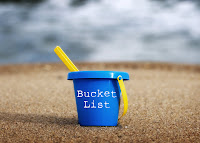Recently, curriculum expert Steven Weber shared his thoughts on the impact of a bucket list for K-12 students. While the education system has previously focused on teaching students to solve math problems, write quality five-paragraph essays, and learn about the history of the U.S. and the world, some might wonder if there is more they should know when they leave high school.
Of course math, English, history, and other subjects are important and a foundation for what is to come in students’ lives, but are we teaching them enough of the other skills they will need to know—time management, communication, financial skills, interview skills, etc.? Those are just some of the skills Weber lists in his personal bucket list for K-12 students.
Unfortunately, time isn’t on the side of teachers as they struggle to teach differentiated, personalized lessons to classrooms of over thirty students. To these teachers, a bucket list sounds like a dream or maybe a “nice idea.” But what if it were more than a nice idea? Weber explains
“If educators would commit to a bucket list for students, then there would be an intentional effort to see that more students are 'the total package.' Some students will still possess better reading skills and some students will have a deeper understanding of digital literacy. Some of the seniors will still go to Harvard and Stanford, while a majority will not qualify…Student success should not be left to the decision students make when they come to a fork in the road. Students will make choices for the remainder of their lives and those choices should be based on a solid foundation.”
So, if you could create a bucket list for what your students would know by the time they graduated high school, what would it include? What about a bucket list for the school year?


I remember wondering how much longer most law schools could continue to exist.
ReplyDeleteprofessional development for teachers